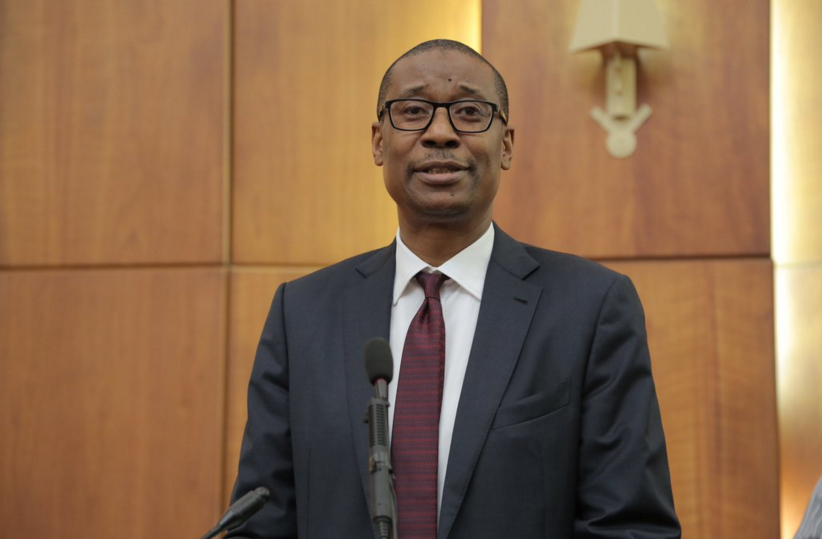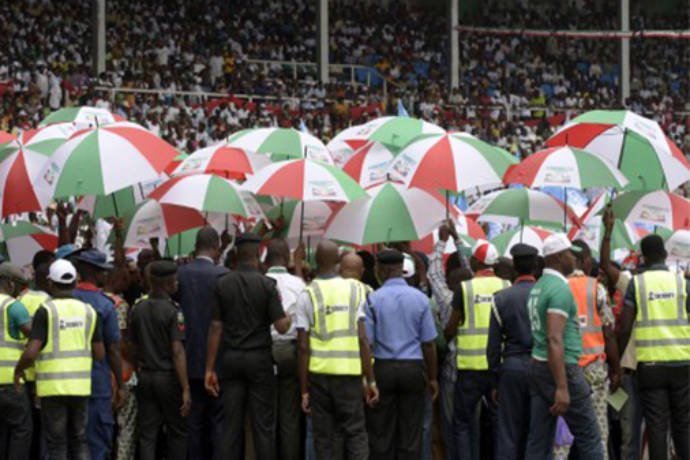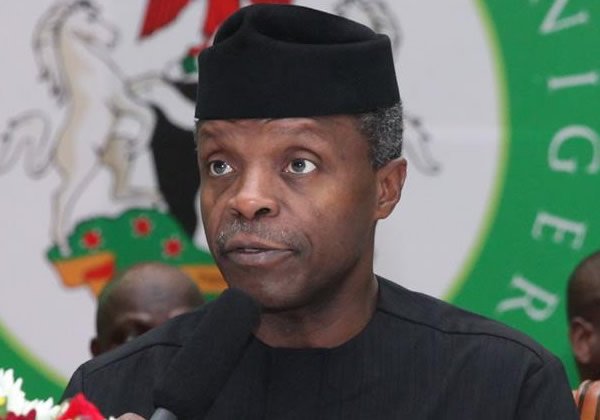Official as well as independent projections of the Nigerian economy are indicating that more difficult years than we have experienced so far lies ahead of the people and businesses. The President, himself warned earlier that Nigerians should prepare for a new level of austerity, which has begun to hit. Though a shock from a government that promised a turnaround, yet a new opportunity to get agriculture right in this country.
Inability to afford daily feeding and basic things of life is fast getting to the point of a national crisis. Every adversity often opens a door for some people and nations to get ahead. That seems to be the right spirit for state and federal governments in navigating the troubled waters of Nigeria’s oil driven economy. The question however is how soon politicians could let the political temperature to cool down and give attention to the pressing issues in the economy!
Federal and state governments continue to lament the revenue crisis induced by the sustaining fall in crude oil prices when they should be taking actions to reposition agricultural activity. The main problems of agriculture in Nigeria are poor funding and dependence on crude technology. Peasant farmers account for 80% of Nigeria’s agricultural produce but they have no access to bank credit facilities. They depend on the hoe and the cutlass – the crudest agricultural implements that are hardly in use anywhere else in the world.
While agriculture accounts for 22% of GDP, its share of aggregate bank credit swings between 1.5 to 3.5%. A significant government intervention is imperative in the sector for Nigeria to head off serious food crisis in the coming years. A major improvement in agricultural output is needed to feed a large and growing population and mechanization of the sector has become quite compelling.
Advertisement
If the economic fortunes of this nation are going to change, something new has to happen in another sector other than petroleum and the most appropriate sector that can bail the economy out is agriculture. The good news that Nigeria needs to hear now isn’t that oil price is pushing up: the real news it desires is that federal and state governments have begun to move the economy in the direction of agricultural revolution. This move needs to happen with a combination of technology and money. The two constitute the critical ingredients for a real commitment of any government towards transforming agriculture in Nigeria.
The crude oil market follows unpredictable cycles of rise and fall and therefore crude oil represents an undependable product around which a nation should anchor its economy. Even if the market recovers in the short-term, it is bound to fall again from time to time according to the normal cycles of bull and bear. So, Nigeria needs new revenue lines that can counter the rise and fall pattern in the oil sector, sustain the level of economic activity, keep production and consumption functions at safe levels and meet the job delivery needs of the economy.
The only sector that meets all these national objectives is agriculture, which calls for a general return to agriculture across the nation. Rather than continue to look unto the federal government for handouts to pay salaries, state governments are in a good position to begin the inevitable onward match to agriculture. This time, lips service isn’t going to do anybody any good. The handwriting on the wall of Nigeria’s future is adverse and a total commitment to change the fortunes of the economy is now no less than an emergency call.
Advertisement
If the nation takes the right steps early enough, the people have the potentials to change the doomsday predictions. If the people and the governments lay back and do nothing but lament, complain and blame, the foreseen worse economic situation will surely come. Nigeria’s leadership needs to employ two key weapons to win the battle against economic crisis – one is speaking confidence into the system and the other is taking actions in difficult situations. Both are still missing for now!
The right direction for Nigeria to move is not farfetched – it is to look inwards. The time calls for few words but more actions on the part of governments at all levels. Most times people are so overwhelmed by challenges ahead that they fail to take appropriate actions needed to move forward. Until action begins to take the place of lamentation, the multiplier effects of a declining economy will continue to wipe off businesses and jobs, income and consumption.
President Buhari’s war against corruption and insurgents should get a third leg to form a tripod, which is to take agriculture to the next level. It is as much real war to defend the people against hunger and starvation as it is to defend them from insurgents. This government cannot afford to lose the battle on the economic front. It has to increase agricultural productivity and ease movement of produce to markets. Agriculture represents a great resource for Nigeria, which has the potential to meet the development and employment generating needs of the country.
One critical area of need is training in a profession that has been generally abandoned and is long dependent on crude technology with a number of traditional practices standing as stumbling blocks to modernization. The need to train the youth and women in agricultural activities should be a major programme on the agenda of government.
Advertisement
There is need also for effective coordination of various intervention programmes in the agricultural sector in the country for effective results. If this is achieved, the investment and employment opportunities that can be generated will be quite huge given the large share of agriculture in the nation’s GDP.
‘Uzor is a a financial analyst
Views expressed by contributors are strictly personal and not of TheCable.







